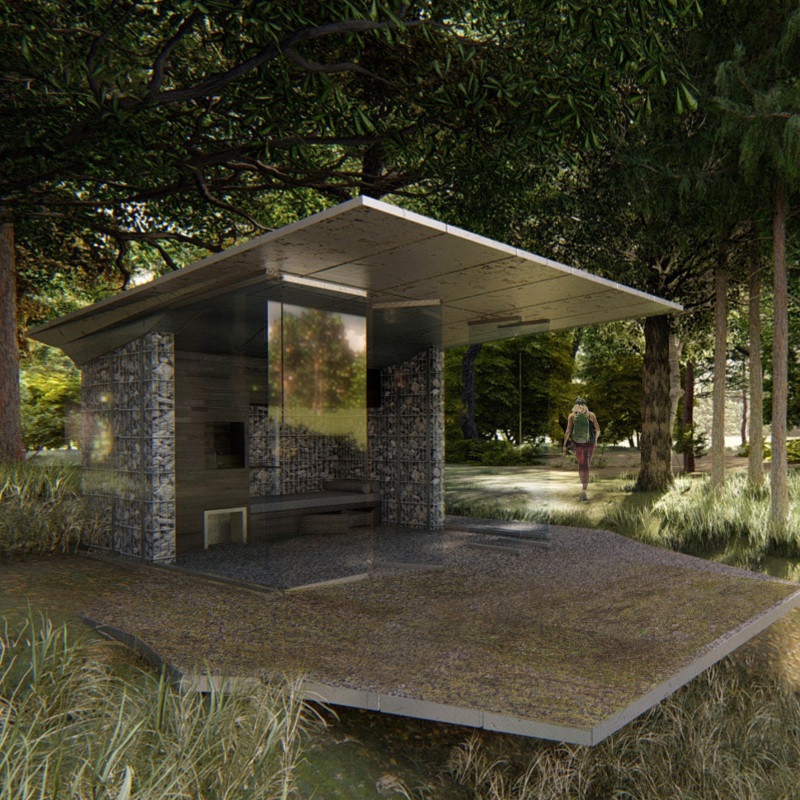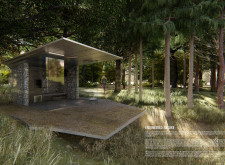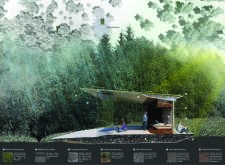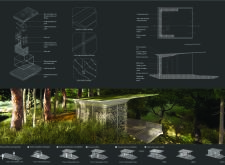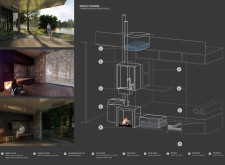5 key facts about this project
The mediation cabin in Latvia serves as a peaceful retreat designed for self-reflection and a deeper connection with nature. Located within a forested area, the cabin functions as a solitary space where individuals can find tranquility and enhance their mindfulness. The design emphasizes simplicity and calmness, creating an environment that allows users to engage with the natural surroundings effectively.
Architectural Approach
The approach to the cabin's design focuses on passive strategies to maintain comfort. Its orientation plays a crucial role, as it minimizes summer heat gain through effective solar shading. The use of thermal mass stone in the floor and walls helps regulate the indoor temperature by storing heat during colder periods.
Material Selection
Pre-engineered aluminum sections are used for both the roof and floor. This choice ensures that the structure is durable and can be assembled quickly. The selection of materials highlights modern construction techniques that emphasize efficiency while maintaining a sense of harmony within the design.
Interactive Elements
An important aspect of the cabin is the gabion wall, made from stones sourced locally. This feature encourages users to participate in shaping the structure over time, creating a stronger bond between the occupants and the surrounding environment. The thermal qualities of the gabion wall further improve the cabin's energy efficiency, making it a thoughtful design choice.
Connection to Nature
Rainwater harvesting is incorporated into the design, with a moss-engineered roof system that naturally filters water. This system supports the basic needs of a single occupant while also promoting sustainable practices. Frameless operable glass panels serve to blend the interior with the outside environment, allowing for ventilation and enhancing the experience of being in nature.
The cabin is characterized by large glass panels that frame the views of the forest, inviting an abundance of natural light into the space. This design detail encourages users to appreciate the beauty of their surroundings while enjoying the simple, reflective time within the cabin itself.


